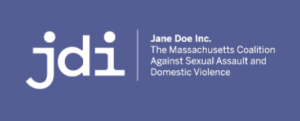Our Services
What we can do for you:

The world is changing the every day. Our job is to ensure their financial foundations are as strong as their missions.
Throughout my many years of dedicated service to the community, I have witnessed firsthand how proper financial oversight and management directly translate into a significantly greater impact on the lives of those we serve. That is the powerful transformation we strive to deliver with every engagement we undertake.
Nancy Kelly, CPA, RN, CFE Managing Partner
FOCUS ON YOUR MISSION
The best not-for-profits deserve the best financial oversight.
FOCUS ON YOUR MISSION
The best not-for-profits deserve the best financial oversight.
Testimonials
Hear it from our clients:

Nancy is a beacon of ethics and integrity. It was her work with Jane Doe that brought us through a very difficult transition and was a key factor in sustaining Jane Doe through that time.
Marjorie Claprood
Program Director, Jane Doe, Inc.

I have never had the experience of being audited in such and efficient and painless way.
Robyn Frost
Executive Director, Massachusetts Coalition for the Homeless

We started working with KVR in 2021 after we officially separated from the Fund for the City of New York (our long-time fiscal sponsor). Over three audits, we’ve learned a lot from her and her team while also actually having a pretty good time getting the audits done.
Betsy Plum
Executive Director, Riders Alliance
ASK EXPERTS
Demystify Compliance
When does our not-for-profit need an audit?
Understanding audit requirements is crucial for not-for-profits as they can differ by state and funding sources. Typically, an audit is necessary when your organization:
- Annual revenue surpasses state-mandated thresholds (usually between $500K and $1M)
- Receives federal funds exceeding $750,000 (or more than $1M for fiscal years starting October 2024), which mandates an audit under the Uniform Guidance
- Is obligated by grantors or donors as a prerequisite for funding
- Is called upon by your board of directors to uphold governance standards
What key policies ensure good not-for-profit governance?
-
- Conflict of Interest Policy – This policy guides the organization in identifying, addressing, and mitigating potential conflicts that may arise, ensuring that all decisions are made in the best interest of the organization and its stakeholders.
- Financial Controls Policy – Establishes comprehensive procedures for handling funds, which includes budgeting, monitoring expenditures, and ensuring accountability in financial transactions to protect the integrity of the organization’s finances.
- Document Retention Policy – Ensures proper record maintenance by outlining how long various types of documents should be kept, in what manner they should be archived, and the process for their eventual destruction, thereby supporting compliance and operational efficiency.
- Whistleblower Protection Policy – Provides safe reporting channels for employees to voice concerns about unethical or illegal activities without fear of retaliation, fostering an organizational culture of transparency and accountability.
- Executive Compensation Policy – Ensures fair and transparent leadership pay by detailing the criteria for compensation packages, including performance metrics and benchmarking against industry standards, thereby supporting equity and fairness in executive rewards.
How do we maintain compliance with grant requirements?
Ensuring compliance with grant requirements necessitates a systematic and methodical approach to management:
- Develop a comprehensive compliance calendar that includes all critical reporting deadlines, allowing for better planning and coordination.
- Establish separate tracking systems dedicated to each grant’s expenses and outcomes to ensure accurate financial management and reporting.
- Thoroughly document all activities, actions, and expenditures related to the grant to maintain transparency and accountability.
- Implement effective time tracking systems for staff engaged in grant-funded projects to accurately capture the hours worked and ensure appropriate allocation of resources.
- Conduct regular internal reviews and assessments of compliance practices well before submission deadlines to identify any potential issues and address them proactively.
What's the difference between a review and an audit?
- Level of Assurance: Audits provide a high level of assurance, indicating the financial statements are free of material misstatements; in contrast, reviews offer only limited assurance, meaning they provide a lesser degree of confidence regarding the accuracy of financial information.
- Procedures: Audits involve extensive detailed testing and verification of transactions and balances, requiring direct examination of evidence, whereas reviews primarily utilize analytical procedures and inquiries to assess the reasonableness of financial information without in-depth verification.
- Cost: Reviews are generally more cost-effective and are typically 50-60% less expensive than a full audit, making them a suitable option for organizations with budget constraints but still requiring some level of assurance.
- Time Investment: Audits demand a more considerable investment of organizational time and resources due to the comprehensive approach needed for testing and documentation, while reviews require less time, allowing businesses to focus on their core operations with minimal disruption.
- Report: Audit reports go beyond simply presenting figures and include an opinion on the truthfulness and fairness of financial statements, while review reports are more concise and express limited assurance without providing a formal opinion.
How can we prepare for a Single Audit?
Preparing for a Single Audit requires careful planning and a thorough understanding of the relevant processes involved:
- Identify all federal awards received and determine major programs that are subject to audit requirements
- Organize all grant agreements, compliance supplements, and relevant reports in a systematic manner
- Document all internal controls that are specific to federal programs to ensure compliance and mitigate risks
- Prepare a comprehensive SEFA (Schedule of Expenditures of Federal Awards) that accurately reflects federal funding
- Review prior audit findings, including any recommendations, and develop corrective action plans as necessary
- Ensure that time and effort reporting systems are properly implemented and adhere to regulatory standards
- Communicate with all of the program managers the requirements for a complaince audit
- Follow up and plan exit conferences with the Members of the Board and Finance Committee
What are common Form 990 errors to avoid?
Welcome to the intricate world of Form 990 compliance issues.
- It is essential to ensure that financial reports are clear and understandable, even for experienced accountants.
- Proper governance policies are crucial to maintaining board effectiveness and avoiding confusion.
- Accurate reporting of fundraising expenses is vital to uphold transparency and avoid errors.
- Attention to related party transactions is necessary to ensure clarity and compliance.
- Describing program services in detail is important to provide a complete picture and avoid incomplete information.
- It is critical to include all executive compensation details to prevent miscommunication.
- Furthermore, careful handling of donor names is essential to avoid significant errors in documentation.
How can we strengthen our internal controls?
Effective internal controls for nonprofits include:
- Segregation of duties, especially in financial processes
- Regular reconciliation of accounts by someone independent of transaction processing
- Documented approval processes for expenditures at various thresholds
- Restricted access to financial systems and sensitive data
- Regular board review of financial statements and variances
- Whistleblower mechanisms for reporting concerns
Our Insights
Knowledge to make your life easier as an Executive Director
Our Insights
Knowledge to make your life easier as an Executive Director
Maximize your mission's potential.
Transform compliance challenges into mission opportunities. Connect with our team now.


